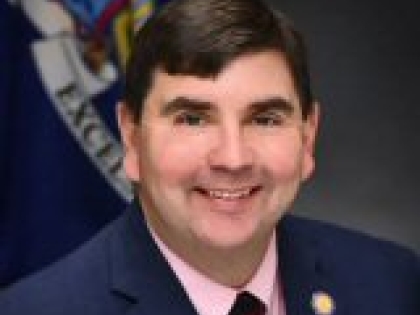
CNY state lawmakers introduce bills aimed at mitigating persistent flooding
WAER 88.3
August 9, 2023
Read the article here.
Two Central New York state lawmakers are taking action to mitigate persistent flooding in the Oswego and Mohawk River communities. Assemblymember Al Stirpe says he began working on an Upstate Flood Mitigation Task Force in 2017, and was largely ignored until last year. But he says he was still getting calls from constituents after hard rains, which have become more frequent.
“Rain has changed over the years," Stirpe said. "From 1870 to 2000, there were only two 100 year events, which is 2 inches of rain in a 24 hour period. From 2001 until 2017, there were 7 events.”
Stripe and Senator John Mannion announced legislation that adopts recommendations from a recent report issued by the Task Force. Mannion says the first place to start is a complete 3-D mapping of the 5,100 square mile Oswego River Watershed and Mohawk watershed using the latest technology.
“Neither of them have been entirely mapped and definitely not since this updated technology is in place," Mannion said. "So now is the time to really do it. And we're fortunate we have this technology and we have the task force in place.”
Mannion says the report outlines everything from capital projects to re-establishing floodplains. It also recommends establishing a Oswego River Basin Authority to improve water and discharge management. That might include coordinating communication between the numerous controlling entities.
“In the Oswego River basin West of the dam in Baldwinsville, you have 10 different some power authorities, some municipalities that are controlling those gates and they're not necessarily communicating with each other," Mannion said. "And when someplace like Cross Lake and the Seneca River are literally underwater for two or three months, they're very frustrated cause it's not always when there is a strong rain.”
The task force will oversee and coordinate those sometimes conflicting priorities among agencies. Funding for flood mitigation measures would come from the state’s $4.2 billion environmental bond act and federal inflation reduction and infrastructure acts. The lawmakers hope most the recommendations can be put in place within the next five to ten years.
Share this Article or Press Release
Newsroom
Go to NewsroomMannion secures funding for employment program at SU
September 5, 2023